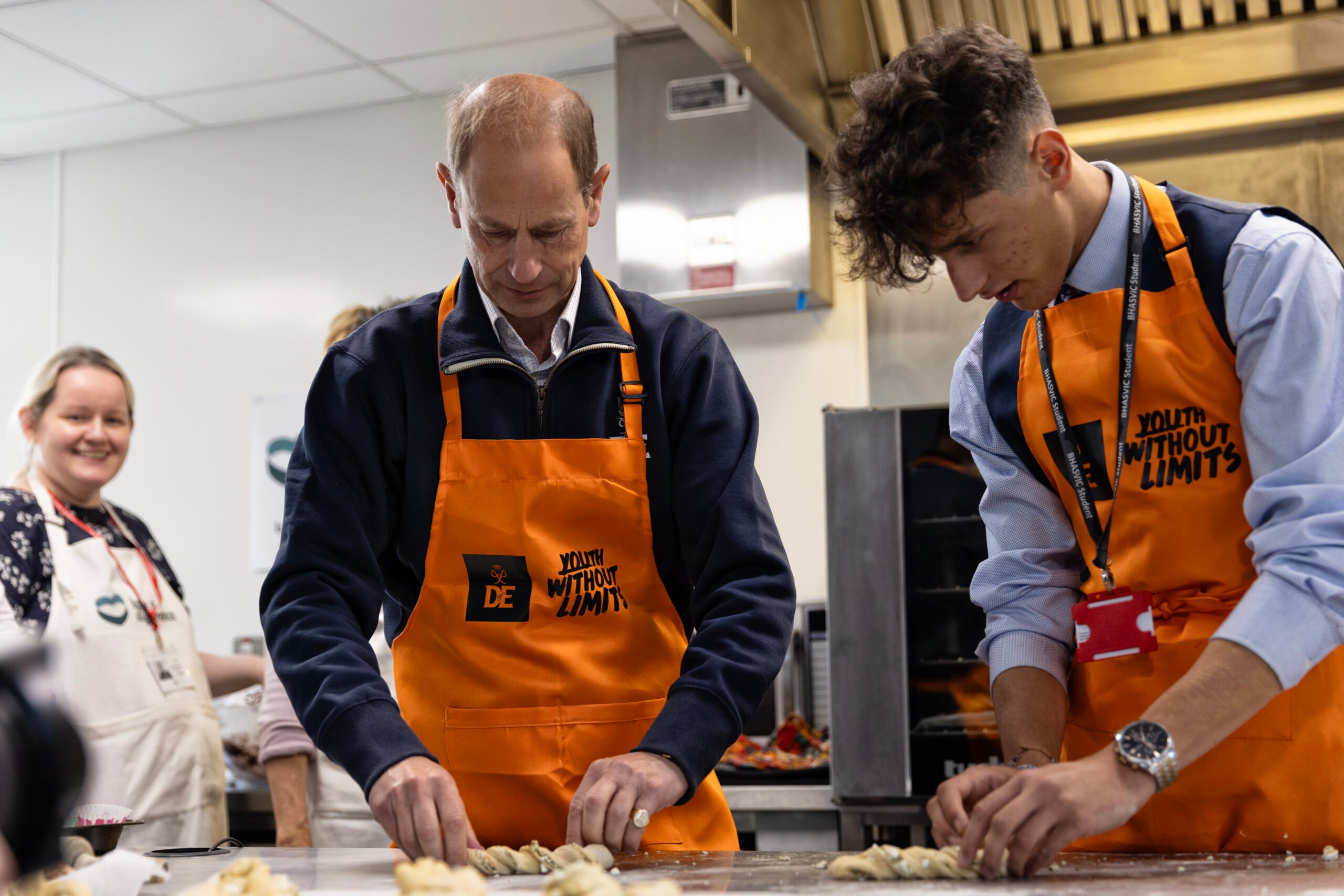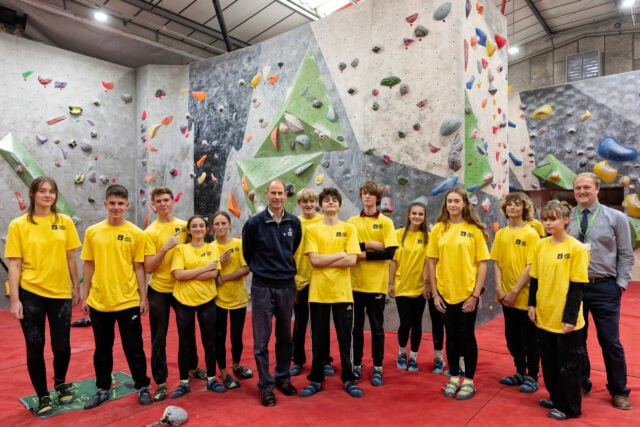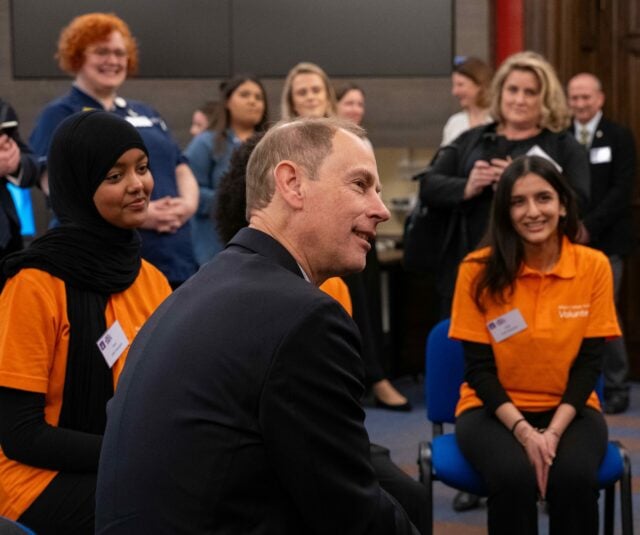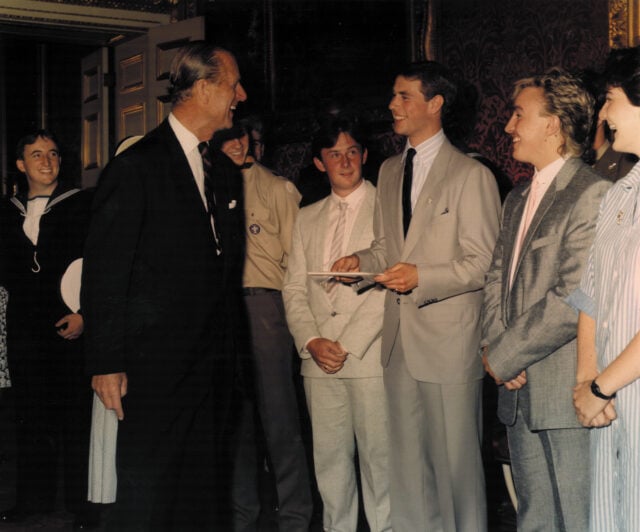
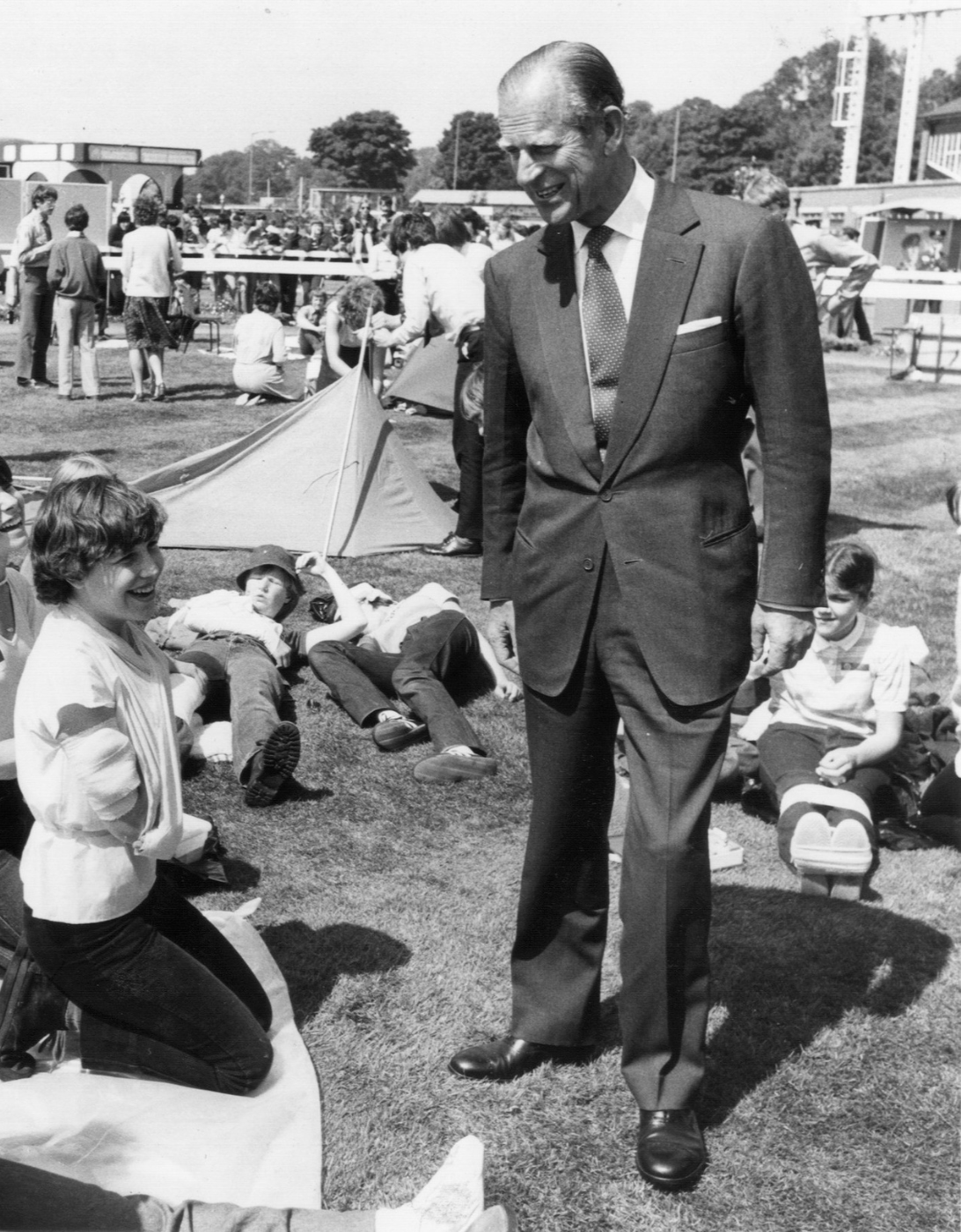
Our Story
HRH Prince Philip, Duke of Edinburgh first considered the idea of a national programme to support young people’s development in 1954 at the request of his former headmaster, Kurt Hahn.
In the post-war era, His Royal Highness wanted to help boys bridge the gap between leaving formal education at 15 and entering into National Service at 18, while building self-confidence and a sense of purpose that would support them into their future.
From the start, The Duke identified that this held a special relevance for young people who might otherwise lack opportunities. A youth programme, he believed, would improve their skills and equip them to make a valued contribution to their communities and wider society.
Following discussions with the Minister of Education, Prince Philip consulted a number of national voluntary youth organisations. A pilot for The Duke of Edinburgh’s Award was launched in February 1956, led by Sir John Hunt (later Lord Hunt). The programme – at that time, for boys only – had four sections: Rescue and Public Service, Expeditions, Pursuits and Projects, and fitness.
Initially, the pilot only involved national voluntary youth organisations; however, it was soon expanded to include Local Education Authorities, the Armed Forces and a handful of independent and grammar schools across the UK. After the first year, 7,000 boys had started a DofE programme and 1,000 Awards had been achieved.
The pilot proved such a success that, by the second year, other small-scale pilots overseas and a programme for girls had also been set up. Furthermore, the number of organisations and young people taking part had more than doubled.
The DofE continued to evolve over subsequent decades and in 1980 the age range was extended so that any young person aged 14 to 24 could take part. At this time, DofE programmes took on their current four section format of: Volunteering, Physical, Skills and Expedition, with an additional Residential section at Gold level. Popularity has continued to grow, with over 130 countries and territories now offering DofE programmes as part of The Duke of Edinburgh’s International Award Foundation.
In 2020, young people stepped up and played an important role supporting communities across the UK to respond to the coronavirus pandemic. A remarkable 330,000 young people continued with their DofE activities – dedicating 1.8 million hours of volunteering, equating to an investment of almost £8.5 million, to local communities at a time when they needed it most.
A new chapter
Sadly, Prince Philip passed away in April 2021 but today his legacy thrives and grows thanks to the tireless support of a new Duke of Edinburgh.
As the son of our Founder, Prince Edward has sometimes remarked that he has DofE in his DNA. Certainly, he has a deep understanding of what the Award means. In 1986 he was among a group of Gold Award achievers who were personally presented with their certificates by Prince Philip. In the decades since, he been a proud and active champion of The Duke of Edinburgh’s Award.
His Royal Highness became a Trustee of the Duke of Edinburgh’s International Award in 1986 and of the DofE charity in the UK in 1988. He later served as Chair of the Award’s International Council for seventeen years. Since 2015, he has been Chair of the International Award Foundation, heading the global family of organisations which continue to deliver on his father’s vision.
In these different roles His Royal Highness has travelled widely within the UK and around the world to support the Award – meeting young participants, thanking the volunteers who make their achievements possible and hosting Gold Awards Celebrations. He has been a committed advocate of the Award and of young people, especially as they have navigated the challenges and effects of the Covid pandemic.
In March 2023, The King conferred upon Prince Edward the title ‘The Duke of Edinburgh,’ succeeding his father. In the same month he became Patron of The Duke of Edinburgh’s Award and the International Award, commenting:
“Being asked to take on the role after my father is a particular honour and quite a responsibility. Sustaining and enhancing what is arguably his greatest legacy around the world matters a great deal to me, as does pursuing The Award’s long-term ambition of universal access so that every eligible young person has the opportunity to participate.”
Like our Founder, The Duke holds a passionate conviction that we should encourage and enable the potential of every young person. We are grateful for his leadership as, moving forwards, we look for new ways and contexts in which to make that a reality.
